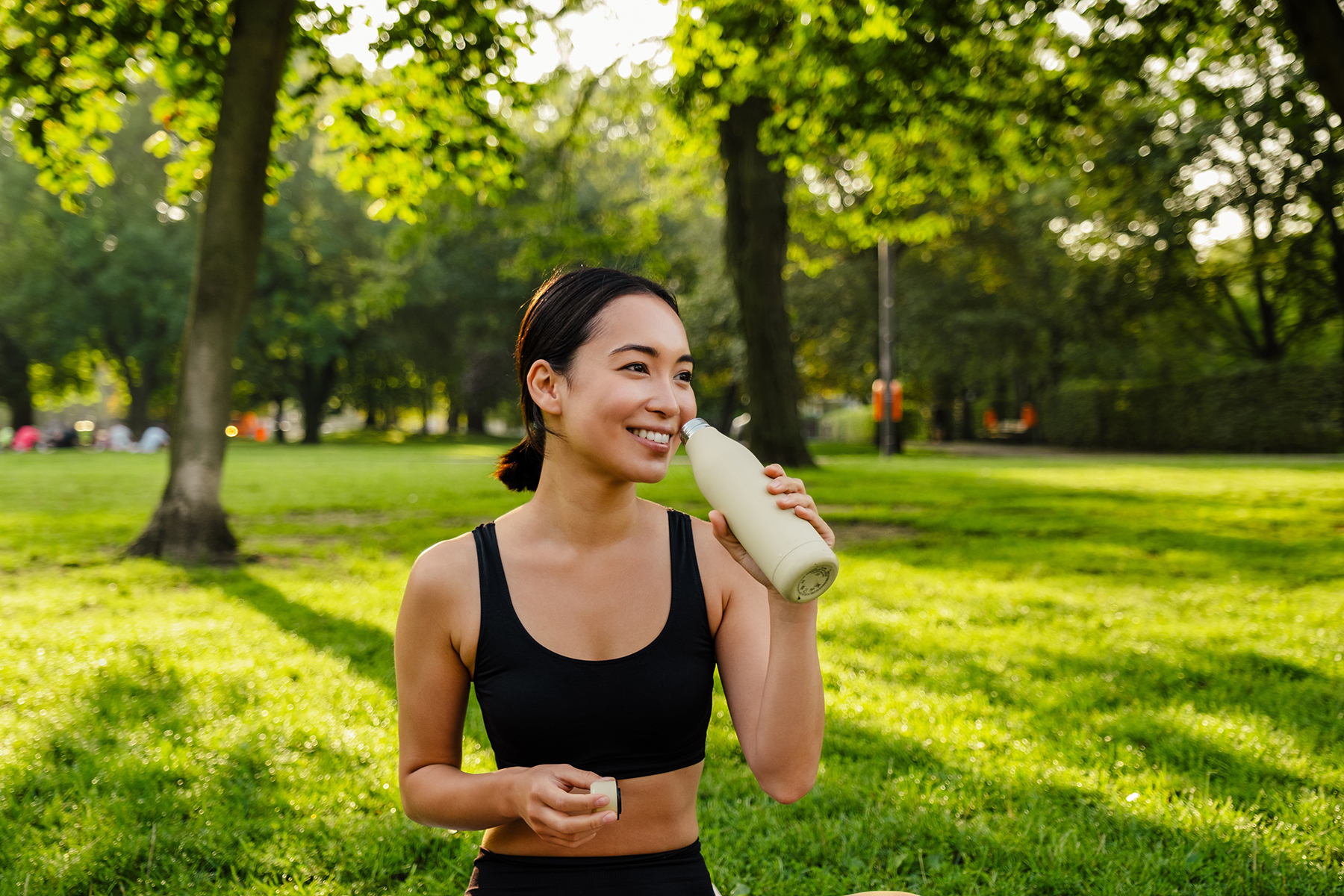Summer Hydration
Stay Active, Cool, and Safe This Season

The summer months bring more hours of daylight, warmer temperatures, and time off from work and school. This combination means more free time to get outside and be active, but sometimes, the heat and humidity can be as much of a deterrent to outside activity as cold, winter weather. But with a little planning and creativity, you can still be active, enjoy the outdoors, and stay healthy during the heat of the summer.
Exercise
For many of us, it’s a challenge to squeeze in a workout anytime of the year. But in the summer, with scorching heat and kids home from school, finding a time and place to work out can be even tougher. Although a midday run might not be a good option in the summer heat, longer days mean there is more time to exercise in the evening when the temperatures drop. Mornings provide a few hours of cooler temperatures too, but as Jennifer Rutledge, a family nurse practitioner with WakeMed Primary Care, points out, it’s key to hydrate before morning exercise.
“In the mornings, you are dehydrated from sleeping overnight and not drinking any fluids,” Rutledge explains. “If you go outside to exercise, and it’s already hot, you are at risk of getting even more dehydrated, which can lead to heat cramps, heat exhaustion, and heat stroke.” Rutledge recommends drinking 16 to 20 ounces of water – about two glasses – in the morning before your workout. Continue to rehydrate while you exercise, and drink another 16 to 20 ounces of water after you exercise. “Evenings can also be a good time to exercise if you feel good, and you have been drinking fluids throughout the day,” she adds.
Running, biking, or walking in shadier areas like a greenway trail can help you stay cooler too. Experts recommend that you limit outdoor activities during peak sun exposure between 11:00 AM and 3:00 PM.
Rutledge also suggests swimming in the summer months. “Swimming is one of my favorite ways to stay active in the summer,” she says. “It is great exercise, and you stay cool.”
Stay Hydrated
It’s always important to stay hydrated, but it can be challenging to do so in the sweltering summer heat. The average healthy person should drink about 62 to 64 ounces of fluids daily. An easy way to remember this is the 8x8 rule – eight eight-ounce glasses of fluids daily. During the summer heat, you should increase your fluid intake by eight ounces to 20 ounces daily, and more when you are exercising. To ensure your children stay hydrated, offer them fluids every 15 minutes while they are outside in the heat.
Rutledge says that water is always the best choice – it’s free of calories and sugar and is inexpensive. If you get bored drinking plain water, consider adding fruit, such as lemon or limes, or sliced cucumbers for flavor and added nutrients. Opting for sparkling or mineral water is a healthy choice too. Other sources can contribute to your total daily fluid intake, such as tea, milk, diet soda, and other low- or no-calorie drinks. Sports drinks, which replace electrolytes lost through sweat, are good options for people who engage in very vigorous physical exercise.
“If you are exposed to extreme heat, sports drinks can be a very good option, but typically I recommend water as the best source of hydration,” Rutledge reiterates.
Another good rule of thumb is to check the color of your urine. You should consume enough water so that your urine is clear or pale yellow, not dark.
Why is it so important to stay hydrated?
Water is one of the body’s most essential nutrients, with 75 percent of the body made up of water. Water helps maintain blood volume and helps regulate blood pressure. It helps lubricate joints and body tissues, keeps our body temperature at a constant 98.6 degrees, transports nutrients and oxygen to all cells, and carries out waste products.
Dehydration occurs when the loss of bodily fluids, mostly water, exceeds intake. Signs to watch for include dark urine, muscle cramps, dry mouth, dizziness, confusion, heart palpitations, and fainting.
In addition to drinking lots of fluids, Rutledge says diet plays a role in avoiding dehydration. “Don’t eat a fast-food lunch that’s packed with salt and fat, and then go outside and exercise in the heat,” she adds. “Try to avoid caffeine, which also dehydrates you.”
Becoming dehydrated in the summer can contribute to heat-related illnesses such as heat cramps, heat exhaustion, and heat stroke. Everyone – regardless of age or health – needs to be aware of the importance of staying well hydrated in the heat.
Jennifer Rutledge, MSN, FNP-C
A family nurse practitioner at WakeMed Primary Care - North Raleigh. She is certified by the American Academy of Nurse Practitioners, and her clinical interests include health promotion and education, chronic disease management, women's health, and preventive care.

